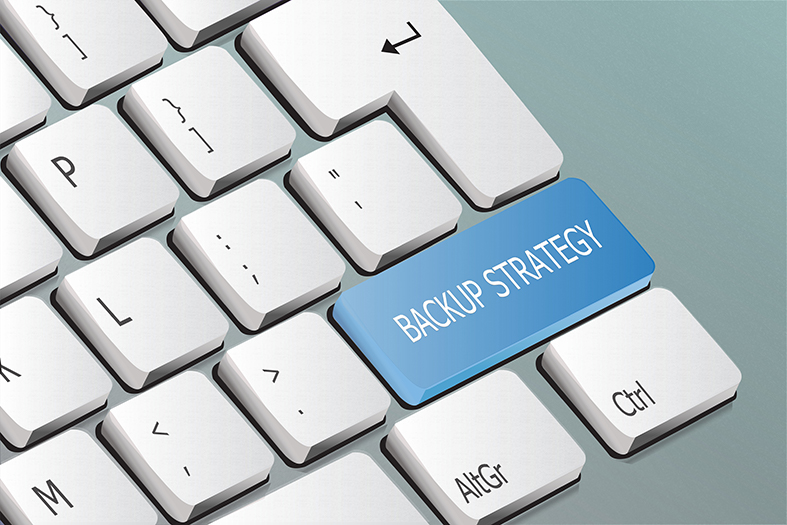Cybersecurity threats such as hacking and malware attacks continue to increase yearly. Also, the main target is usually different types of businesses all over the globe.
One way to keep your business safe and secure from hacking attempts or potential data breaches is to establish a data backup and recovery plan. This is because Information Technology (IT) security goes a long way in protecting your systems and data. Also, there are various ways your business could lose data. It could be lost through corrupted files, hardware failure, malware, viruses, human error, and many more.
Moreover, IT services protect against malware and ransomware. To know more checking out Netsurit, an IT company in Johannesburg, and other reliable providers is a good starting point.
Today, most businesses rely on data backup and recovery on the cloud. Thus, you must ensure sufficient protection for your digital data. Read on to know several measures in boosting your backup strategy.
1. Organize Your Data
One of the initial considerations to help with your backup strategy is to organize your data. Try to develop a standard way of categorizing your files. This is so you and your employees will know their location and readily access them when needed.
Make this task your initial step before backing up your files to help save time. It would be less of a hassle when the time comes to retrieve lost data. Also, it will help you to easily restore them to their proper locations.
2. Plan For More Storage Space
Digital data continuously grows especially with your email and social media content space. It might be best to consider the available data storage options to accommodate your growing data. Today, you can choose between physical data backup or cloud storage.
Physical data backup such as removable media might be at risk for disasters such as fire or flooding. It’s best to consider getting both storage options. Choosing both physical data backup and cloud storage is the best way to ensure your data is secure.
3. Backup Regularly
If you overlook or fail to back up your data regularly, your business is likely to lose more information. With this in mind, make sure to back up data more often. Make it a priority to back up all your critical files locally. The backup files should be physically available in the workplace to allow convenient retrieval and maintain control.
Aside from backing up your data locally, you also need an offsite backup system. It’s essential to have a copy of your data in an offsite location to ensure redundancy and disaster prevention. A second backup provides a level of assurance in case your first backup fails.
Generally, a backup might fail since it did not run properly in the first place. It could also fail if runs incorrectly or due to hardware failure, data deterioration, and many more. When you keep your data offsite, it protects against disasters such as fire or flooding. The same goes for applications, and it might be best to switch to cloud-based software or tools.
4. Make The Most Out Of Automated Scheduling
When backing up your data manually, a time will come when you might forget to save your data. If that happens, your business is at risk for a data breach or loss, potentially losing all critical data.
One of the must-have features is automation which helps you choose files for backup and recovery and keep them synced to the cloud. You need to look for an option to perform incremental backups to lessen the bandwidth that your backup routine needs.
Don’t forget to conduct large backups to cover your network applications and databases. It might be best to schedule it overnight to prevent any disruptions to your business operations.
5. Prioritize Encryption
Most businesses today should backup some sensitive data, including employee records, customer details, or billing information. Even if your data is not highly sensitive, you should not take any chances of allowing your files to leak out or end up being hacked.
Encryption is worth considering when backing up your business data to the cloud. Make sure your cloud provider offers end-to-end encryption. With this approach, your data undergoes encryption before it goes to the cloud. Generally, it adds an extra level of security, so even if a hacker was able to obtain files, access isn’t possible since a key is required.
Conclusion
It’s essential to take into consideration a few things to improve your backup strategies. Whether or not you have a plan in place, having a backup plan is better than nothing. This is especially true during these times when cybersecurity threats are rampant.
One of the crucial elements in the management of your business is a backup routine for your data. It’s one of the best ways to keep your business safe from cybersecurity threats such as hacking, malware, or ransomware, and unforeseen disasters such as fire, flood, or theft. By making the most out of these backup strategies, your business data and systems are safe. Thus, you could ensure seamless operations at all times.

 Click here to see all of our Software Training Courses
Click here to see all of our Software Training Courses

